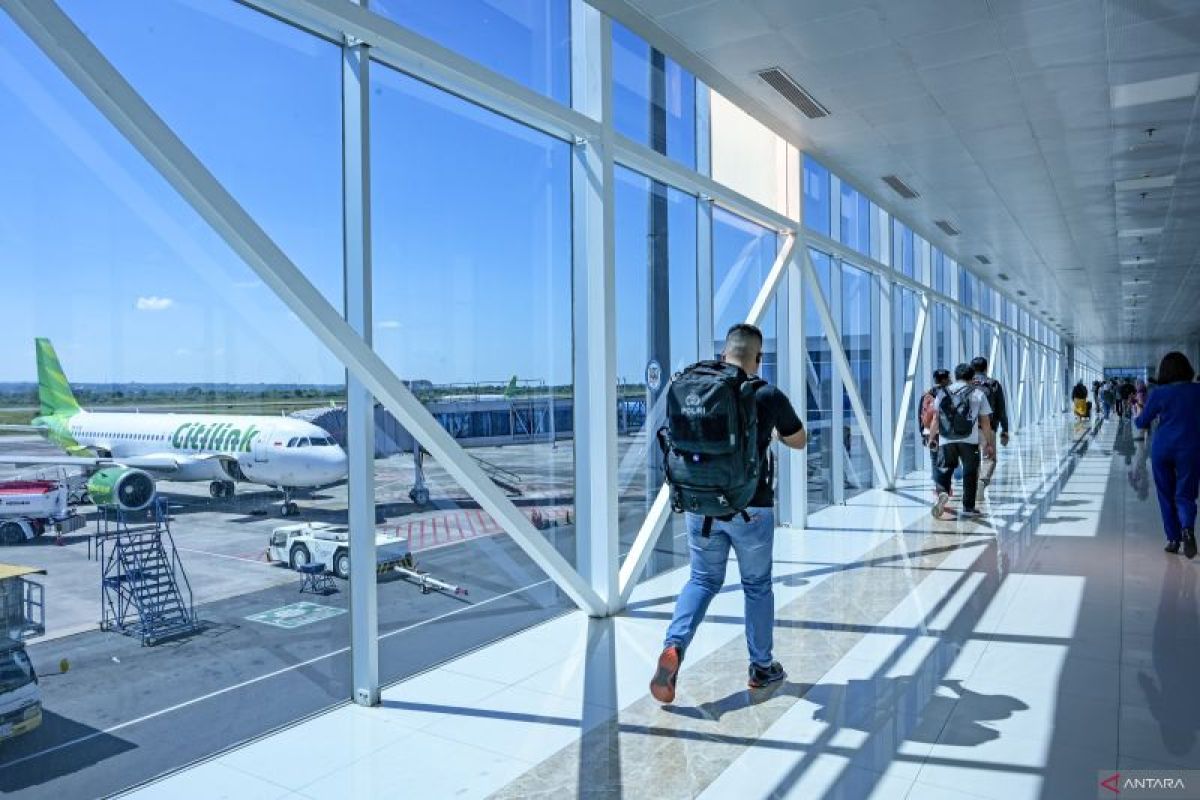The number of aircraft in Indonesia is recovering after a sharp decline caused by the COVID-19 pandemic, according to an official from the Ministry of Transportation.
During a public transportation performance evaluation on Wednesday, the ministry's spokesperson, Adita Irawati, stated that the pandemic significantly impacted Indonesia’s aviation industry, including the number of operational aircraft.
"The fleet size decreased drastically, down to only about 40 percent of what it was before the pandemic," she said. "It is gradually recovering, though it has not yet returned to pre-pandemic levels."
Before the pandemic, around 800 aircraft were operating in Indonesia. This figure dropped dramatically to just 40 percent during the pandemic, Irawati added.
Currently, the ministry reports that the number of aircraft in operation has reached between 450 and 500.
Irawati noted that the mismatch between supply and demand remains a major issue in the aviation sector, as the available fleet cannot fully meet current demand.
She also highlighted that this imbalance is affecting flight ticket prices.
The Ministry of Transportation emphasized the need for more than 800 aircraft to meet travel demand, especially in high-potential areas such as priority tourism regions.
Irawati explained that the government has established a pricing corridor with upper and lower tariff limits to stabilize ticket prices. However, airlines are allowed to charge prices at the upper limit based on market conditions.
She added that during peak travel periods, such as the homecoming season or Christmas and New Year holidays, a surge in demand for air travel is expected.
Irawati warned that if the government finds any violation of the specified tariff limits, sanctions will be imposed in accordance with applicable regulations.
COPYRIGHT © ANTARA News Jawa Timur 2024
During a public transportation performance evaluation on Wednesday, the ministry's spokesperson, Adita Irawati, stated that the pandemic significantly impacted Indonesia’s aviation industry, including the number of operational aircraft.
"The fleet size decreased drastically, down to only about 40 percent of what it was before the pandemic," she said. "It is gradually recovering, though it has not yet returned to pre-pandemic levels."
Before the pandemic, around 800 aircraft were operating in Indonesia. This figure dropped dramatically to just 40 percent during the pandemic, Irawati added.
Currently, the ministry reports that the number of aircraft in operation has reached between 450 and 500.
Irawati noted that the mismatch between supply and demand remains a major issue in the aviation sector, as the available fleet cannot fully meet current demand.
She also highlighted that this imbalance is affecting flight ticket prices.
The Ministry of Transportation emphasized the need for more than 800 aircraft to meet travel demand, especially in high-potential areas such as priority tourism regions.
Irawati explained that the government has established a pricing corridor with upper and lower tariff limits to stabilize ticket prices. However, airlines are allowed to charge prices at the upper limit based on market conditions.
She added that during peak travel periods, such as the homecoming season or Christmas and New Year holidays, a surge in demand for air travel is expected.
Irawati warned that if the government finds any violation of the specified tariff limits, sanctions will be imposed in accordance with applicable regulations.
Editor : Vicki Febrianto
COPYRIGHT © ANTARA News Jawa Timur 2024

